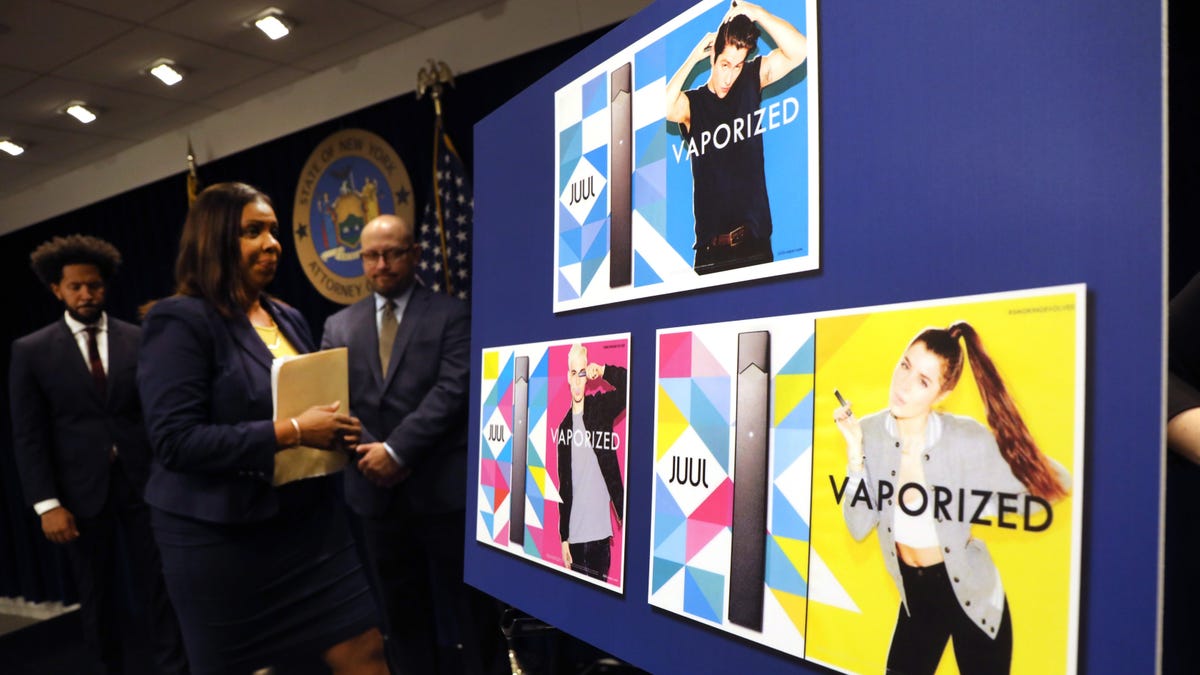
G/O Media may get a commission
Advertisement
Juul, meanwhile, acknowledged the settlement in a brief statement on its website.
“We remain focused on the future as we work to fulfill our mission to transition adult smokers away from cigarettes—the number one cause of preventable death—while combating underage use,” Juul said.
Advertisement
Juul did not immediately respond to Gizmodo’s request for comment.
Attorneys Generals from Connecticut, Florida, Nevada, Oregon and Texas led an expansive, bipartisan, multistate investigation dating back to 2020. Ken Paxton, the Texas AG, alleges Juul achieved its dominant status atop Vape Mountain by, “willfully engaging in an advertising campaign that appealed to youth.” Juul allegedly used young models, launch parties and free samples to market towards underage customers. The investigation also took issue with Juul’s early packaging which allegedly didn’t clearly state the devices used nicotine.
Advertisement
“With a technology-focused, sleek design that could easily be concealed, JUUL sold its products in flavors known to be attractive to underage users,” Paxton’s office said on its website. “JUUL also manipulated the chemical composition of its product to make the vapor less harsh on the throats of young and inexperienced users. To preserve its underage customer base, JUUL relied on age verification techniques that it knew were ineffective.”
Advertisement
Juul’s hazy future
Tuesday’s settlements put to bed one of the biggest immediate threats to Juul’s business, but the company’s troubles are far from over. Juul still faces nine additional lawsuits from other states, ABC News notes, as well hundreds of lawsuits from minors who claim they got hooked on vaping because of Juul. And then there’s the whole saga with Biden’s Food and Drug Administration.
Advertisement
The FDA unexpectedly ramped up efforts to curb Juul’s reach back in June when it issued a marketing denial order to Juul, effectively banning it from selling its products in the U.S. Though the FDA previously wounded Juul with a ban on pod-based e-cig flavors other than Tobacco or Menthol (in other words, all the good ones) the agency’s most recent ban went for the jugular.
Yet, somehow, the company’s managed to cling on to life. The company appealed the FDA’s “extraordinary and unlawful” ban less than 24 hours after the announcement. In their appeal, Juul shot back at the FDA for allegedly singling them out among a crowded field of nicotine products. Then, in July the FDA walked back its ban, announcing its decision to stay the marketing denial due to “numerous scientific issues unique to the JUUL application that warrant additional review.”
Advertisement
In its statement Tuesday, Juul expressed confidence that the FDA would rescind its marketing denial after the FDA, “does a complete review of all of the science and evidence.”